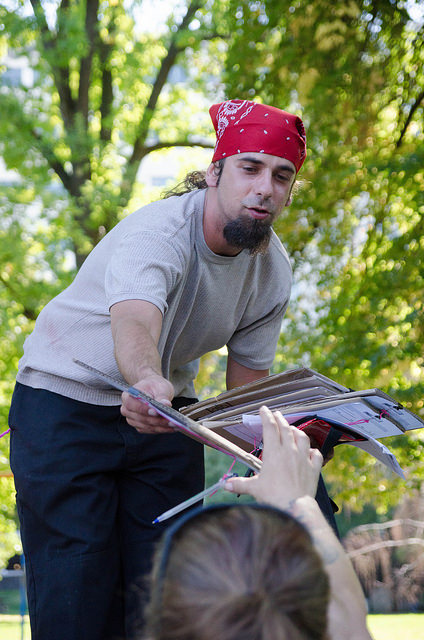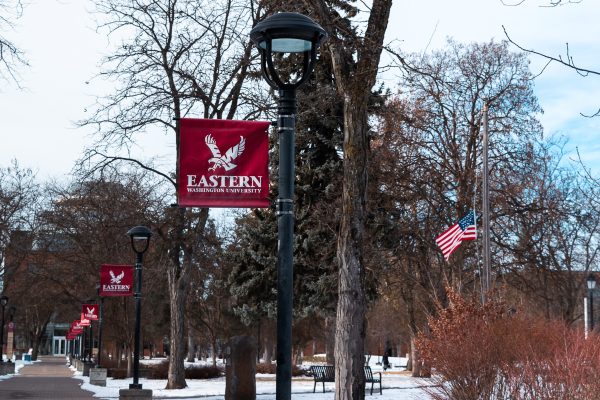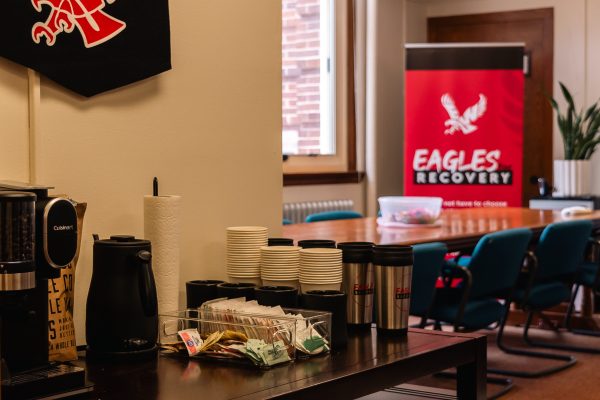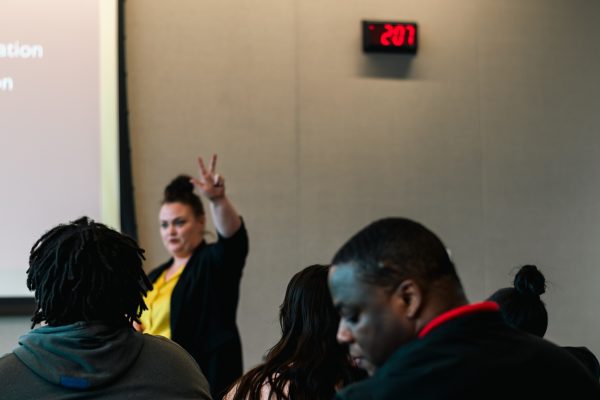Inland Northwest shares global warming woes
September 26, 2014
As the temperature hovered around 90 degrees, the Spokane contingent of the People’s Climate March raised their signs through downtown chanting, “coal trains are insane.”
On Sept. 21, People’s Climate Spokane, along with citizens from Sandpoint, Idaho to Cheney, gathered at Cowley Park on the lower south hill of the city. They marched along the busy streets raising awareness about global warming in solidarity with the 300,000 people in New York and other cities around the globe.
Brian Eister, one of the march coordinators, handed out petitions that were sent to world leaders who convened on Sept. 21 for the Climate Summit in New York. According to the United Nations website, Secretary-General Ban Ki-moon invited leaders to discuss plans and ambitions to combat global warming.
But around the Inland Northwest, the influx of trains carrying fossil fuels remains a hot topic. Oil and coal trains moving through the area affect towns like Sandpoint and Cheney.
Sandpoint is the site of a controversial plan to run a second train track over Lake Pend Oreille to accommodate heavy rail traffic, according to an article in The Spokesman-Review. The concern for the city’s officials is potential pollution of the lake.
In Cheney, the trains are nuisances to some residents.
Jeremy and Nancy Street live near the Red Barn in Cheney and said noise was an issue that would get worse with more oil and coal trains. Also, they were worried about people who live on the other side of the tracks.
“There’s the right side of the track and then there’s the wrong side,” said Jeremy Street. “There’s no services on the other side of the track, so if something happens … it’s going to take a long time for [emergency responders] to get there.”
Within the group of civilian protesters, state rep. Joe Pakootas dawned his Nike trainers and walked in the march, talking to participants and chanting the protest slogans.
Pakootas (D-Washington), who is running against Cathy McMorris Rodgers (R-Washington) for her seat in the House of Representatives, addressed the group of marchers in front of the train tracks at Martin Luther King Jr. Way, the entrance to Spokane’s University District.
“Being an environmentalist is ingrained in me,” Pakootas said. “I am a Native American. I grew up on a reservation.”
He said he was always taught that he needed to leave the Earth in better condition for future generations than how he found it.
As a train with a Canadian logo passed by behind him, he spoke over the blow horn explaining how the coal and oil trains are not part of what Washington stands for. These fossil fuel carrying trains do not originate from Washington.
Nancy Street said that while coal trains are dangerous, the oil trains are the locomotives that the public needs to worry about. A website she went on illustrated how close her home was to the blast zone if the combustible fuel exploded.
“We’re a half-mile inside the zone,” she said.
Hollis Higgins said he did not want to use another ounce of fossil fuels. A member of the Green Party since 1972, and a member of Veterans for Peace, Higgins stripped out his car, leaving the gas engine behind. Now he is waiting for a shop in Idaho to install his lithium-ion batteries.
He said while waiting for his car to get fixed he is stuck driving a truck with poor gas mileage.
However, if he did not do anything with his car, Higgins said his carbon footprint would keep increasing.
The Environmental Protection Agency defines a carbon footprint as, “the total amount of greenhouse gasses that are emitted into the atmosphere by a person, family, building, organization or company.”
“I’d die of grief knowing how big that carbon footprint would be,” he said.



















